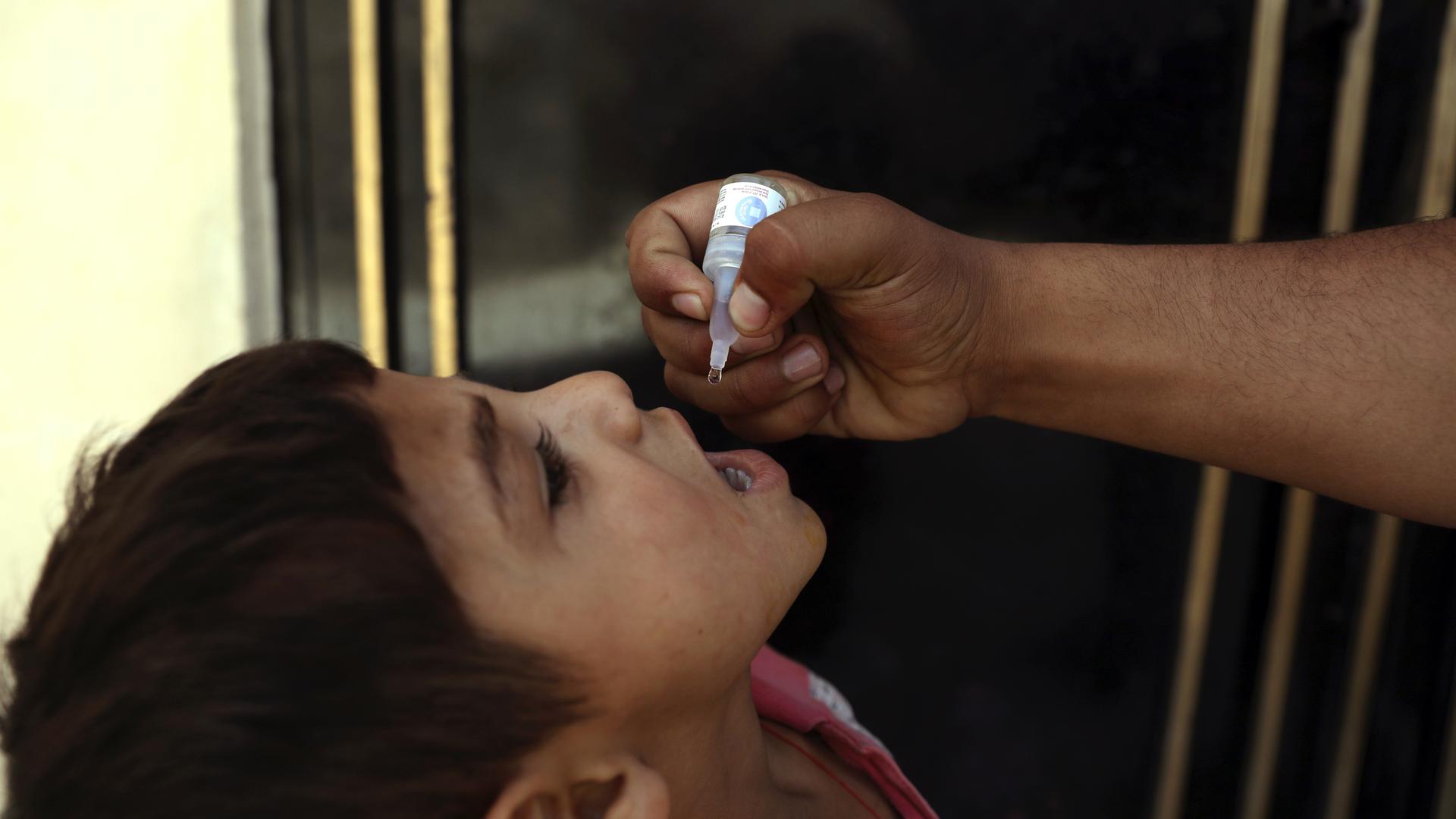An upcoming vaccine drive in Afghanistan is an ‘unprecedented opportunity’ to eradicate polio, UN official says
Next month, UN agencies in Afghanistan will restart a nationwide vaccination drive that’s been on hold for more than three years due to conflict and security threats.
A simultaneous effort in Pakistan — the only other country where wild polio currently persists — will begin in December, and with only two cases reported so far this year, health experts are hopeful that the disease will soon be eradicated altogether.
In the coming weeks, Afghanistan will also undergo measles and COVID-19 vaccination campaigns, UNICEF said.
Related: How ethnic and religious divides in Afghanistan are contributing to violence against minorities
UNICEF and the World Health Organization recently reached an agreement with the Taliban allowing the vaccinations to resume and permitting Afghan women vaccine workers to take part in the drives as well.
Salam al-Janabi, UNICEF’s representative in Afghanistan, said the agreement with the Taliban is significant as it allows Afghan women vaccine workers to take part in the drives as well.
“It is really encouraging that female health workers and vaccinators are going to be part of this campaign because, frankly, you cannot do house-to-house vaccination campaigns without our female colleagues and female staff being part of these campaigns,” he said.
He and other health experts say it’s crucial to have women participate because they often can get better access to mothers and their babies, especially in the more conservative parts of Afghanistan. And it’s crucial to get every child vaccinated.
“This is an unprecedented opportunity to end this disease,” Janabi said.
Until now, vaccine workers have faced major security threats both in Afghanistan and neighboring Pakistan. Extremist groups labeled them as dangerous, foreign agents.
Last March, gunmen killed three female polio vaccination health workers in the Afghan city of Jalalabad. Just a few months later, another four polio vaccine workers were killed and three injured in separate attacks.
The wave of violence in Afghanistan led officials there to suspend the polio eradication drive, leaving millions of children at risk of contracting a preventable disease. But now, the Taliban have reached an agreement with UNICEF and the World Health Organization to allow the vaccinations to resume.
Polio can cause partial paralysis in unvaccinated children, and there’s no cure for the disease.
“Vaccination efforts have missed a lot of children in both Afghanistan and Pakistan.”
“Vaccination efforts have missed a lot of children in both Afghanistan and Pakistan,” said Dr. Hamid Jafari, director of polio eradication for the World Health Organization’s Eastern Mediterranean region.
“In Afghanistan, we were not able to consistently vaccinate 3.3 million children for 3 1/2 years, and in Pakistan, also, there are areas where still many children are being missed.”
But as hopeful as the news about the polio drive is, Afghanistan is facing a larger humanitarian challenge ahead.
When the Taliban took over in August, the US froze roughly $9.5 billion of the country’s assets. That’s because members of the Taliban leadership are on US and European sanctions lists.
As a result, the Taliban haven’t been able to pay health care workers’ salaries or support the health care system, in general.
“Primary and secondary health facilities have collapsed,” UNICEF’s Janabi said. “We are seeing children who are really in desperate need of treatment for severe acute malnutrition and health facilities are not able to provide it.”
This week, the UN described the overall humanitarian situation in Afghanistan as a “countdown to catastrophe.”
“The combined shocks of drought, conflict, COVID-19 and an economic crisis in Afghanistan have left more than half the population facing a record level of acute hunger.”
“The combined shocks of drought, conflict, COVID-19 and an economic crisis in Afghanistan have left more than half the population facing a record level of acute hunger,” it said.
The impact has already been disastrous.
Last weekend, Mohammad Mohaqiq, a former Afghan government official, said the bodies of eight orphan children who had starved to death were found in a neighborhood in Kabul.
“There is no doubt that they died of hunger,” Mohammad Ali Bamiani, a local cleric said in a Facebook post.
Taliban officials are urging the international community to give them access to the frozen funds.
But Western countries want commitments from the Taliban in return. For example, that they allow high school girls to return to school and that they uphold women’s rights.
In the meantime, Janabi of UNICEF said aid organizations are doing what they can.
“As long as we are able to continue these conversations at all levels, we will try and find ways to deliver the necessary and lifesaving aid for children, [and] for girls, as we can, while the bigger politics get sorted out,” he said.
